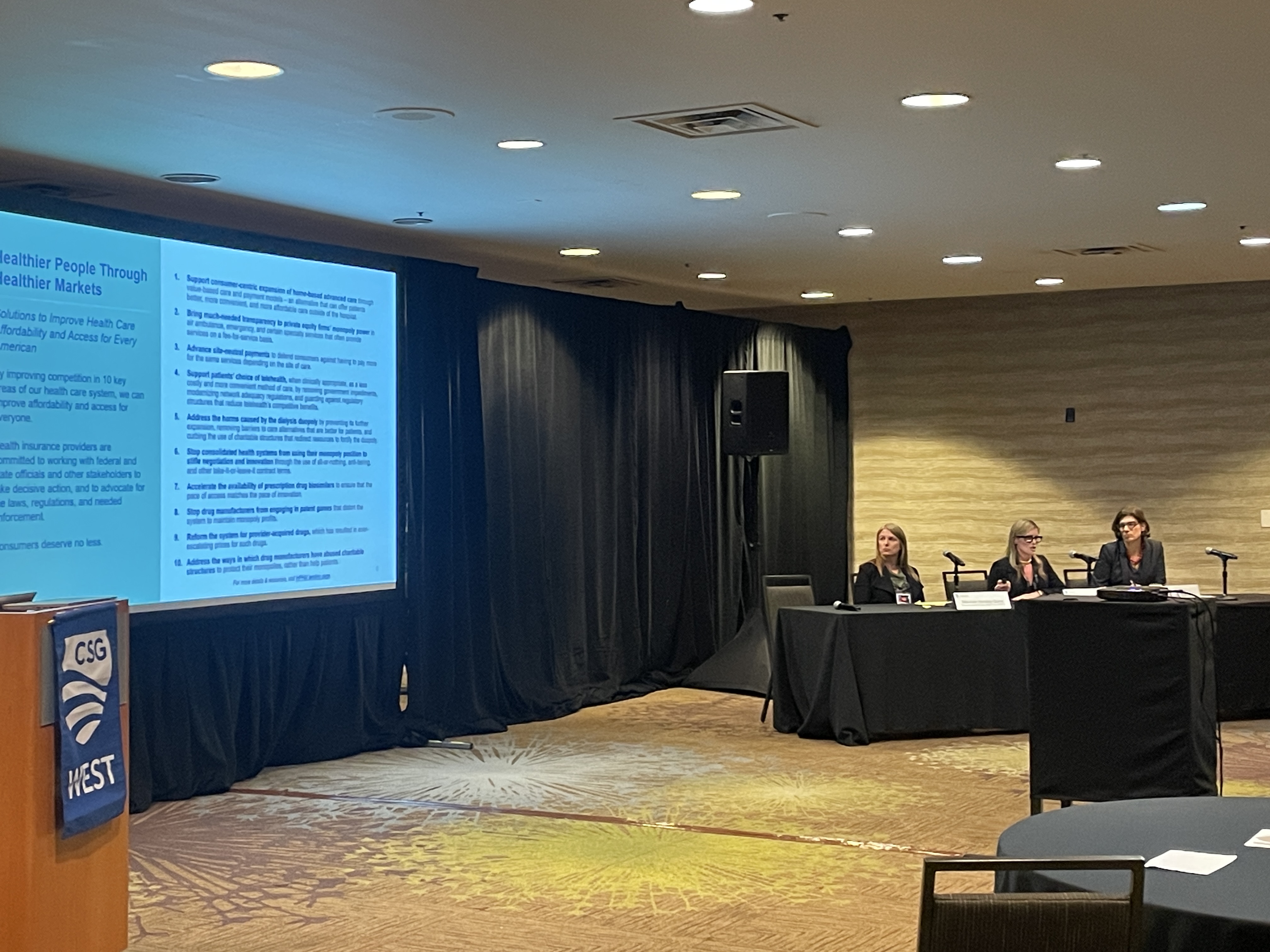Addressing Rising Health Care Costs with State Lawmakers at CSG West

The Council of State Governments (CSG), West, hosted its annual conference last week, gathering over 300 lawmakers and experts to tackle emerging challenges facing their states. State legislators and government officials heard from subject matter experts on emerging issues within AI, education, pharmaceuticals, housing, health care affordability, and more.
The Regence Health Policy Center convened a panel on provider affordability, featuring insights from AHIP, the National Academy for State Health Policy (NASHP), and Washington State Representative Nicole Macri. The panel spotlighted obstacles to affordability including provider acquired drug markups, consolidation, anti-competitive contracting terms, and exorbitant facility fees.
Maureen Hensley-Quinn, Senior Program Director, Coverage, Cost and Value for NASHP, underscored how state lawmakers are looking to rein in health care costs through four areas: addressing anti-competitive health plan contracting terms, limiting out-of-network hospital prices, limiting outpatient facility fees, and establishing oversight on mergers and acquisition transactions.
To understand which policy solution may be best for their state, Maureen highlighted NASHP’s innovative cost tool that allows policymakers and researchers to explore various hospital data including breakeven points versus actual prices paid for health care services, hospital revenue versus expenses, labor costs, margins, and more.
Miranda Motter, Senior Vice President of State Affairs and Policy from AHIP, presented on AHIP’s Healthier People Through Healthier Markets initiative, a comprehensive strategy to enhance health care affordability and access for Americans. The initiative provides solutions to ten areas within the health care system that will improve access and affordability.
Those include addressing private equity firms’ monopolization, advocating for site neutral payments to level the health care playing field, and cautioning lawmakers on the rise of markups by provider-acquired specialty drugs.
Washington State Representative, Nicole Macri (43rd District), began by outlining the health care challenges facing the U.S., highlighting a Gallup poll showing 38% of respondents delayed medical care in 2022, the steepest increase in the 22-year trend. Localizing to Washington State, she noted health care costs represent 20% of the state’s budget.
To rein in health care costs within the state, she championed three bills to improve transparency and address provider consolidation: HB 1272 (passed in 2022), SB 5393 (introduced in 2023), and HB 1508 (introduced in 2023).

